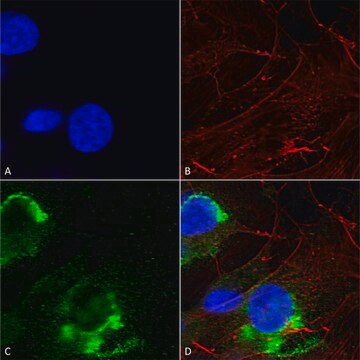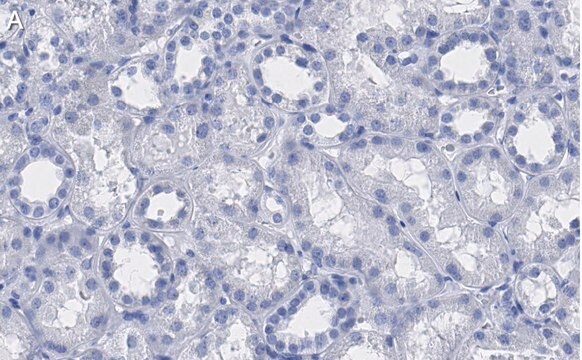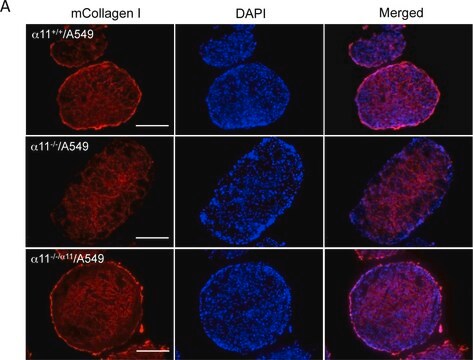MABN40
Anti-LRRK2 Antibody, clone N138/6
clone N138/6, from mouse
Synonyme(s) :
leucine-rich repeat kinase 2, DARDARIN, augmented in rheumatoid arthritis 17, Parkinson disease (autosomal dominant) 8, Dardarin
About This Item
Produits recommandés
Source biologique
mouse
Niveau de qualité
Forme d'anticorps
purified immunoglobulin
Type de produit anticorps
primary antibodies
Clone
N138/6, monoclonal
Espèces réactives
human
Réactivité de l'espèce (prédite par homologie)
mouse (based on 100% sequence homology)
Technique(s)
immunohistochemistry: suitable
western blot: suitable
Isotype
IgG1κ
Numéro d'accès NCBI
Numéro d'accès UniProt
Conditions d'expédition
wet ice
Modification post-traductionnelle de la cible
unmodified
Informations sur le gène
human ... LRRK2(120892)
Description générale
Spécificité
Immunogène
Application
Qualité
Immunohistochemistry Analysis: 1:300 dilution of this antibody detected LRRK2 on 10 µg of human placenta and Parkinson′s diseased vascular brain tissue.
Description de la cible
Forme physique
Remarque sur l'analyse
Human placenta and Parkinson′s diseased vascular brain tissue
Autres remarques
Vous ne trouvez pas le bon produit ?
Essayez notre Outil de sélection de produits.
Code de la classe de stockage
12 - Non Combustible Liquids
Classe de danger pour l'eau (WGK)
WGK 1
Point d'éclair (°F)
Not applicable
Point d'éclair (°C)
Not applicable
Certificats d'analyse (COA)
Recherchez un Certificats d'analyse (COA) en saisissant le numéro de lot du produit. Les numéros de lot figurent sur l'étiquette du produit après les mots "Lot" ou "Batch".
Déjà en possession de ce produit ?
Retrouvez la documentation relative aux produits que vous avez récemment achetés dans la Bibliothèque de documents.
Notre équipe de scientifiques dispose d'une expérience dans tous les secteurs de la recherche, notamment en sciences de la vie, science des matériaux, synthèse chimique, chromatographie, analyse et dans de nombreux autres domaines..
Contacter notre Service technique







